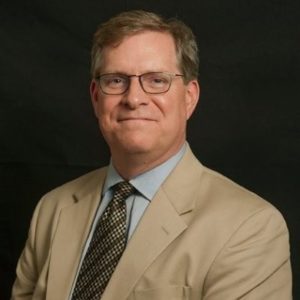
On the occasion of the seventh annual meeting of the Social Impact Exchange, I would like to thank all who make it possible. As the Chair of the Board of Directors, it is a pleasure to support President & Co-Founder, Alex Rossides, and Co-President, Toni La Belle, and all of their colleagues in their work. We are also all grateful to all our meeting sponsors (listed here) and especially our partner, Morgan Stanley. Without their effort and support we would not be meeting in New York once again.
However, we could not put on as substantive a conference without the insights and connections we gain from our work with funders and non-profits all year round. So, we should also thank the members of our working groups in early childhood, health, and poverty alleviation for their dues and the grant funds we have received to push this agenda over the last seven years (Hint, hint).
Last, my fellow directors and I would like to thank those who are attending the meeting. We serve on the board because we believe as you do that improving the effectiveness of non-profits, social enterprises, and their philanthropic supporters is urgent and achievable. For the social sector to address our pressing concerns in education, inclusion, health, climate, and justice, among other challenges, is not just “nice” and not just a sideshow to the real work in government or business sectors. At this point, government is profoundly challenged and struggling to even understand its obligations and balance its priorities. And if the problems we wish to address were solvable by the operation of normal supply and demand, profit-seeking markets, they would probably have been substantially solved by now. But they are not.
For example, in my sector, health, we see the government of the U.S. virtually paralyzed by fundamental differences in how healthcare is seen – right or privilege?; individual responsibility or social good? We have not been able to deploy technology in ways to reduce costs and improve quality the way we have in other sectors. And when we feel like being honest, even after the ACA, we still face perverse market incentives where the interests of government and commercial purchasers, health plans, and the health care delivery system of hospitals and professionals far too often come before those of people and the health of the population. So the social sector must lead in solving these kinds of problems to help produce the society that we need in the future.
At the same time, the social sector cannot address these challenges alone. A major theme of this conference is how to bring different stakeholders together: individual philanthropists, traditional foundations, impact investors, new hybrids, government, non-profits, social ventures, and all of the confusing proliferation within our conference. At SIE, we have come to realize that our earlier, venture capital inspired vision of achieving large scale impact on society’s challenges was too simple. While it had some impressive breakthroughs, it suffered because it still was too hard to bring together money and resources for individual evidence-based solutions.
And one of the reasons it was still hard, was that the complexity of our social challenges defy solution through even supremely well-targeted silver bullet solutions. Every stakeholder tends to focus and deeply understand their part of the problem hoping that it will be THE fulcrum to change the world. But that mental model is wrong. Our problems will not fall to a single push, even the best designed and best funded push. So this year, you will hear not only about ways that individual non-profits can put more resources to work to change more lives, but how networks of actors can work together within a common frame to address the multiple barriers that must be overcome to create true systems change.
Even with this expanded vision of change, the one thing I know about solving our most pressing problems, is that I don’t know how to do it. The way I see it, the history of attempting intentional large scale solutions to human social problems is relatively short, unanalyzed, and frequently perilous with unintended consequences and dead ends. In my view, the essential commitment we must have is not to our theories of change, our of-the-moment funding strategies, or our brilliant financing tricks. In my view, we must be committed above all else to systematically improving while doing. We can’t wait in our effort to try to make a better society and world for our children and our neighbors’ children, but we must also constantly test our hypotheses as we proceed, honestly share our successes and failures, and rapidly change our approaches as we go.
I hope that you found this rigorous analysis, radical candor, and willingness to learn this year at SIE 2017.